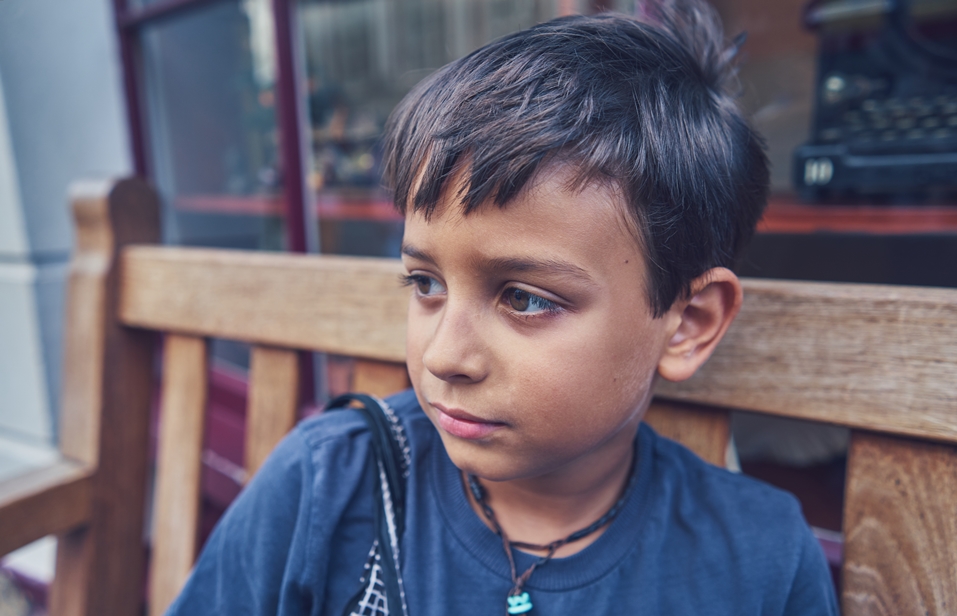Social anxiety disorder, or social phobia, is characterized by an intense fear of social and performance situations and activities. This can significantly impair the child’s school performance and attendance, as well as the ability to socialize with peers and develop and maintain relationships. The feared situation is most often avoided altogether or else it is endured with marked discomfort or dread.
Major symptoms include the following:
- Difficulty with public speaking, reading aloud, or being called on in class
- Avoiding or refusing to initiate conversations, invite friends to get together, order food in restaurants, or call, text, or e-mail peers
- Frequently avoiding eye contact with adults or peers
- Speaking very softly or mumbling
- Appearing isolated or on the fringes of the group
- Overly concerned with negative evaluation, humiliation, or embarrassment
Children, adolescents, and teens with this disorder may have few or no friends. They may not participate in class or play at recess. A child who has had trouble making friends or who avoids participating in school and social activities and shows no sign of improvement may have social anxiety disorder.
Worried that your child might be suffering from Social Anxiety Disorder:
- Does your child seem to have difficulty speaking in front of others?
- Does he/she become extremely nervous and complain of physical symptoms like stomach ache, nausea, trembling, at the thought of social interaction and performance situations like speaking to a group?
- Does he/she tend to appear have difficulty meeting other children or joining in groups
- Does he/she have a limited number of friends
- Does he/she avoid social situations where they might be the focus of attention or stand out from others – for example, talking on the telephone and asking or answering questions in class?
Treatments, we provide that can help your child and you
Psychoeducation
Parental counselling
Cognitive Behaviour Therapy
Behaviour Modification
